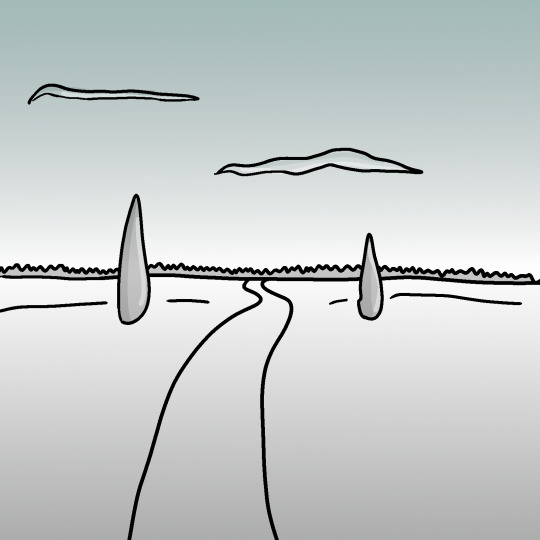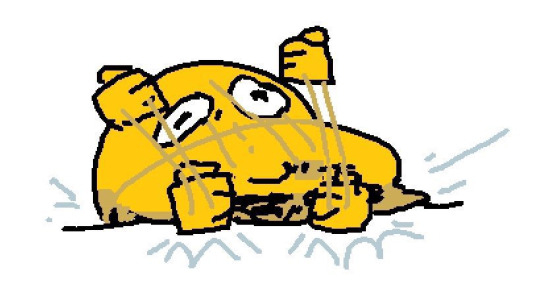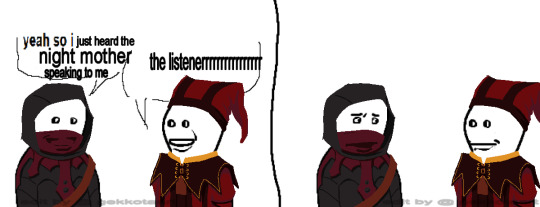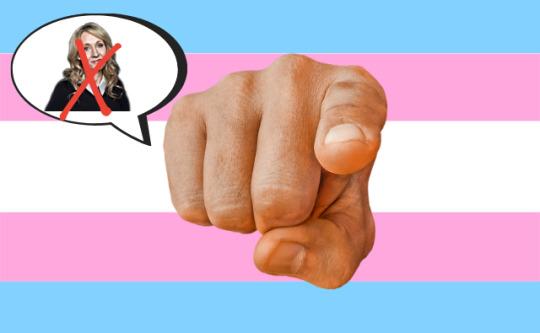Text
"Fairytales don't tell children, that dragons exist.
Children already know, that dragons exist.
Fairytales tell children, that dragons can be killed."
G.K. Chesterton.
3K notes
·
View notes
Text
You know that thing where you see a gorgeous view (left) and try to take a picture of it, but your phone camera is a joyless fucking nihilist who refuses to see the beauty in anything and only sees this (right)


#I feel this way about any photo I take of food I make#I'll think something looks amazing#But I take a photo and suddenly I think it must look unappetizing
80K notes
·
View notes
Text
I just....I just learned that there's a word in the English language...for when you run into someone to hug them with all the enthusiasm and strength you have....I learned that it's called glomp.
My God, English has so many words to describe physical intimacy, I'm in love

55K notes
·
View notes
Text
being obsessed w a piece of media is so scary. what if my mutuals see how insane i go about it and think oh i gotta check out what this is about and then think it sucks and kill me with rocks. what if they hate my favorite characters
19K notes
·
View notes
Text

pride unicorns
10K notes
·
View notes
Text
Shows you should save physically immediately
Over the Garden Wall -- It's being pulled from HBO Max on August 31 and knowing HBO, there's a chance it'll be pulled sooner. *I have now made a Google Drive of all the episodes of OTGW. Please, please, please, PLEASE, save these on a physical device.
The Owl House -- Disney has tried to bury this show many times (giving it a weird release schedule, cutting the budget, etc) and has even cancelled the show. Also, Disney+ is going to nuke their catalogue soon and I doubt TOH will survive*I have now also saved all the episodes of TOH. Click here for the posts with all of the episodes
Amphibia -- I know less about the behind the scenes BS than TOH but Amphibia was screwed over by Disney mainly by poor promotion. Also since one of the protagonist is openly bisexual*, like TOH, I really can't imagine this would survive.*Amphibia has also been saved. Go here for the post with all the episodes.
Steven Universe -- Cartoon Network cancelled Steven Universe and gave it a weird release schedule, it has also just been pulled from HBO Max.
Gravity Falls -- Once again, Disney+ is going to nuke their catalogue at some point in the future and between Wendy being canonically bi, Sheriff Blubs and Deputy Durland being in a relationship, and Alex Hirsch (being the amazing man that he is) constantly calling Disney out on their BS, I imagine that Disney would be more than willing to nuke Gravity Falls. *I’ve also saved Gravity Falls now go to the main post here to see all the episodes.
and most importantly
Every single show, book, game, fanfiction, movie, etc you've ever loved
We now know that at any moment's notice, streaming services can and will just nuke their catalogue without hesitation. If it's digital, it can be removed and there's a likely chance you'll never see it again.
So, please take some time to save anything you love on an external device. It could be a box set (it can be official or fan-made one), a USB, or anything.
If you have a physical copy of something, it's yours forever and no one can take that away from you.
*Edit because I’ve seen some confusion about this. Read this again, it’s “one of the protagonists” not “the protagonist.” Sasha is the one who’s bi, Anne’s sexuality hasn’t been confirmed.
Also in addition to this, people have reblogged this to say Steven Universe is still on HBO. Since I don’t have HBO, I’ve been going off of what people have been saying and I’ve seen it mentioned that HBO was taking off SU. You should still save it though.
*Edit 2 if any of the links here don’t work, check the original post as I might’ve changed/updated them. If that still doesn’t work, send me an ask or DM I’ll give them to you.
19K notes
·
View notes
Text
A Synthesized History: An Amateur Comparison of the Perspectives between the "Patriot's," the "People's," & The "True" History of the United States - Part 14
Full Essay Guide link: XX
(Patriot - Chapter 17 | People - Chapter 16 | True - Chapter 25-26)
World War II and Shifting World Powers
As explored in the last section of this essay series, the 1930's were a difficult time for the United States and much of the western world. While the United States coasted through the decade using reactionary short-term economic measures led by president Roosevelt, some European countries responded to the global economic crisis in considerably different ways.
In Germany, a string of antisemitic policies were enacted by their newly appointed chancellor, Adolf Hitler. Much of this antisemitic attitude placed blame of the economic suffering at that time on the shoulders of the Jewish people. The United States was aware of this concerning development but wished to remain neutral on European affairs. Thus, the United States government made no declaration on the xenophobic affairs of Germany. In fact, American companies with trade and/or production ties in Germany continued business as usual. The same applied to fascist Italy, run by Prime Minister Benito Mussolini. When Italy invaded Ethiopia in 1935, the United States remained "neutral" but American companies still actively sold Italy the necessary oil to fuel their war efforts. Essentially, the United States policy of nonintervention benefited the growing fascist regimes.
As tensions increased across Europe over the 1930's, many speculated the potential for another major conflict. Some citizens of the United States participated in peace marches while others participated in strikes on college campuses. Many other citizens were wary of another potential intervention into European affairs, believing the first world war was a costly and pointless endeavor. Roosevelt declared the "Neutrality Acts" in response to this speculative conflict. The Neutrality Acts would allow the United States to refrain from direct intervention but would impose an arms embargo on any belligerents, should a war occur.
The situation in Europe would only grow worse. In 1938, Hitler's German forces invade Austria. Over 3000 Jewish denizens were applying for immigration visas a day to flee the invasion, but due to the United States' recent immigration restrictions, the United States could only apply up to 850 of these immigrants a month.
Despite invading and annexing both Austria and Czechoslovakia, it was not until the invasion of Poland in September, 1939, that Britain and France would declare war on Germany. At this point, Roosevelt began to repeal aspects of the Neutrality Acts. His interactions with other world leaders showed sympathy for their cause and soon enough he and Winston Churchill, Prime Minister of the United Kingdom, would form a political friendship.
With the European conflict growing in magnitude, FDR decided that the potential for national emergency coupled with the ongoing difficulties of the domestic economic depression required further executive leadership. He ran for a 3rd term, something no president before had done. At this point the public was aware of a shifting tide that suggested an eventual intervention in the European conflict was inevitable.
In November, 1940, President Roosevelt won his 3rd term and almost immediately launched aid to Great Britain via executive order. Fifty WWI bombers were declared "obsolete" and sent across the Atlantic to Britain. The United States then began a "lend-lease" policy, which allowed supply aid to be granted under a "borrowed" contract. Critics would often poke at this policy, asking how one could "return used bullets." Regardless, it allowed the United States to intervene and indebted multiple countries to the United States.
After several years of of watching the situation across the ocean, the public acclimated to the idea that American intervention was almost certain. Publications across the country promoted a sympathetic European brother, needing the help of the United States as they fought fascism. At that point there was very little coordinated opposition to the war outside the Socialist Workers' Party. Even the American Communist Party, which had opposed the war in 1939, changed their stance as the conflict continued to look more bleak. Of course, any potential organized opposition was fiercely challenged. The FBI and HUAC monitored for potentially "disruptive" groups. There was also the Smith Act of 1940, which took aspects of the Espionage Act and applied it to peacetime, giving the United States more control to silence dissent.
President Roosevelt and the American government continued to aid the war without being "in" the war. Troops were stationed on both Iceland and Greenland to prevent Nazi's from having easy access to either. The defense perimeter was also extended, and the Navy had orders to track German submarines and report their position to British contacts. Eventually the order was changed to just shooting them on sight. The Germans returned the hostilities and engaged in several attacks on U.S. boats and ships, such as the sinking of freighter SS Robin Moor. These attacks made for effective propaganda tools and led to a more outraged and war-hungry public.
Roosevelt and Churchill's political alliance continued. They devised a document known as the Atlantic Charter which detailed a post-war world after an assumed Allied victory. It was celebrated for declaring the rights of nations to self-determination, restoration of self-government, and more open trading. These and more were outlined by the two optimistic world leaders, one of whom was not even in the war yet.
The United States had initially continued trade with Japan despite their invasive and aggressive war with China, providing them with up to 80% of their oil. The United States eventually imposed sanctions on gasoline, iron, oil, and other commodities. This was potentially in hopes of staunching the Japanese and their aggressive strategy, but instead it merely made them desperate. Japan wanted to force the United States to renegotiate over these sanctions but likely did not intend or want a total war with the United States. Their strategies were desperate and short-sighted, however. On December 7th, 1941, "a date which will live in infamy," the Japanese attacked the Pearl Harbor naval base near Honolulu, Hawaii. Four days later Germany and Italy declared war on the United States.
If the United States had hoped to only engage with Japan, then the declarations of war from the other Axis powers made this impossible. Even with three enemies to fight, though, the United States had large advantages. One, it had the advantage of distance. Being so far removed from most of the fighting, the U.S. could afford to be strategic in how it entered the fight. Two, the U.S. also had nearly double the income of Germany, Italy, and Japan, despite the economic suffering of the Great Depression.
The United States had been preparing for this possibility. Rapidly the country amassed the largest army in its history-- smaller than Germany's and less than half of Russia's, but still the biggest army the United States had ever raised. Never before had a greater proportion of the population participated in a war. Eighteen million served in the armed forces, with 10 million serving overseas, and 25 million citizens giving to the war effort through war bonds. Civilians also helped the war effort by increasing farm production, growing backyard "victory gardens" to help with potential food supply shortages, and by organizing scrap and paper drives.
Multiple organizations were established that helped the U.S. shift completely towards the war effort. The War Production Board and later the Office of War Mobilization helped shift large industries to the war effort by focusing on production of war equipment such as tanks and carriers. The Office of War Information was a propaganda agency that helped continue and enforce public support of the war. The Office of Strategic Services, a pre-runner to the CIA, gathered enemy intelligence.
The Allied Powers comprised of many nations, but the three largest were the United States, the United Kingdom, and the Soviet Union. This was an alliance largely made out of necessity. The United States wanted to expand their economic growth across the Pacific and retaliate for previous attacks. The United Kingdom wanted to maintain the European power structure and its hierarchy. Russia desperately needed aid, as they were taking on the brunt of the German army and were almost constantly engaged with infantry fighting.
Even during the beginnings of this 3-way alliance, signs of the later Cold War were there. The US and UK worked with the Soviet Union but did not trust Stalin and his communist regime. Stalin, likewise, likely held resentment and mistrust due to his ally's continued delay/deferral of establishing a second war front. Russians were being slaughtered by the millions but instead of truly helping their ally, the US and UK deemed fighting and maintaining their influence in Northern Africa was more immediately important. Russia was put in a difficult position, with Stalin reaching out to negotiate with Hitler in December of 1942 and in the summer of 1943, indicating Stalin was not certain of victory against the belligerent Nazis. The 2nd front in the European war finally happened in May of 1944.
The U.S. and U.K. engaged in "strategic" bombings of civilian cities in both Germany and Japan. This was to cause national suffering and weaken the morale and will of the enemy nations. In the European theater, this weakened the German offense against the Soviets, as many of their aircrafts were pulled away from the front to defend the homeland and counter-attack the bombing parties.
June 6th, 1944, is one of the most striking dates in the history of the war-- "D Day." It was the convergence of many military forces from allied countries storming the beaches of Normandy, France, which would ultimately lead to the liberation of France. At this point in the war, Italy's forces had all but collapsed and Germany was now surrounded by enemies. The Soviet Union began to reclaim territory and occupied much of the Germans' invaded lands, including Poland. Germany tried to push an offensive to reclaim territory and fracture the Allies during the Battle of the Bulge. Germans tore a 45 mile wide gap in Allied forces, but when the freezing weather conditions cleared, the Germans were surrounded by overwhelming forces. Soviets occupied Berlin, Mussolini had been killed by Italians forces that opposed the war, and Hitler had killed himself. On May 7th, 1945, Germany declared unconditional surrender. Less than a year after D Day, on May 8th, 1945, ("VE Day") the European theater was won.
The United States was not done, of course. The war in the Pacific was still going strong. Troops adopted an "island hopping" strategy to attempt to gain ground on the Japanese combatants, but progress was slow. Initially, the Japanese dominated the Pacific conflict. This would not last. Key strategic victories on Midway Island and the Guadalcanal airfield, coupled with the cracking of the Japanese naval code helped considerably shift the war's favor to the United States.
The United States had the long-term advantage of a thriving wartime economy whereas the Japanese situation grew increasingly more desperate. Despite the ability to out-produce Japan and the shifting tide of the conflict, the Japanese remained a difficult enemy to fight. This was in part because of the jungle terrain often being fought in, but also because of significant cultural differences that affected the Japanese soldier's views of war and surrender. Honor was a highly regarded cultural value, comparable to the way the U.S. people viewed "freedom," and to surrender or fail to fight was a great mark of shame. Thus, many Japanese combatants refused to stop fighting, potentially believing their lives were worth losing for their country's cause.
The Japanese/American conflict sparked vitriolic racist motivations culturally. When the war in Europe was sold to the American people, it was presented a fight against the rise of fascism. The pacific war was presented as a fight directly against the Japanese. Propaganda depicted the Japanese with grossly stereotyped and exaggerated features. This was also demonstrated the other way around-- American POWs in the European conflict had 90%+ survival rates, versus the 1/3rd of them that died under Japanese capture. This hatred fueled anger and the anger fueled fighting. Racial tensions became so pronounced after the Pearl Harbor attack that the American government was fearful of its own Japanese citizens. Executive Order 9906, signed on February 19th, 1942, ordered the constraint of Japanese-American citizens and immigrants into concentration camps across multiple states. These camps would be active for more than 3 years.
By 1945, the Japanese were confined to their lands, held little supply stability, and had virtually no navy left. Japanese leaders began to probe the possibility of peace through Russian contacts, but Japanese militarists continued fighting. The U.S. would take accept nothing less than "unconditional surrender," which put Japan in a difficult and desperate position. It was unclear how long the Japanese could last but even if their fighting spirit lasted to the last man, it was clear they had no advantage left to them.
The Soviet Union was not far along from entering the Pacific conflict due to an agreement with the United States: Russia would enter the pacific conflict 90 days after victory in Europe was declared. If the United States could force a surrender before Russian forces offered support, it would prevent the Soviets a chance to sink their own self-interests in the potential outcome of the fighting. To force this surrender, the United States unveiled the fruits of a years long weapons project.
Dubbed the "Manhattan Project," this weapons project aimed at building powerful bombs using nuclear energy. The United States was not the only country working on achieving the "atomic bomb," but they were the first to succeed. The project had been in development since 1941 and on August 6th, 1945, the United States used it on the city of Hiroshima. Over 140,000 people were killed by a single bomb. Three days later they dropped a second bomb on Nagasaki, killing over 70,000 people. The death toll would grow even worse as the fallout settled and poisoned many survivors of the initial blasts. With these two bombs, the United States shifted the world's view on what carnage was even possible in war. Emperor Hirohito declared the surrender of the Japanese empire shortly after, on August 15th, and the surrender was formally signed on September 2nd, 1945, ending the global conflict.
President Truman (successor to Roosevelt who died of a brain hemorrhage a month before VE Day) never once showed any regret for using the bombs. In fact, Truman's comments on the bombs indicated that he had always intended on using any and all of the weapons at his disposal to win the war. Some historians argue that bleak projections on the potential casualties if a mainland invasion was attempted over the atom bombs, demonstrated that far more would have died. The United States lost many of its troops to the Pacific front and many feared worse loss. Despite this claim, the United States Strategic Bombing Survey would later conclude that the bombing was unlikely a "necessary" strategy.
World War II fundamentally changed the power structure of the western world, shifting much of the power to the isolationist United States. This shift made sense when considering the variables. The United States already had a considerable ability to generate economic production, and the shift to a wartime economy pushed production even further. Countries were granted aid by the United States but usually owed that capital in return. Europe's primary powers were ravaged and needed time to heal after once again losing millions to a global war. The Soviet Union was also set to become a major superpower but was at a disadvantage compared to the U.S. due to their massive war casualties and a comparative lack of initial economic power.
The United States, under Truman's leadership, moved away from its isolationist tendencies and began to more actively intervene in the world. These interventions were framed as being against the "rule of force," justifying these interventions as a necessary good. This new intervention strategy was quickly seen during the Korean War, in which the United States intervened by supporting South Korea while China and the Soviet Union supported North Korea. Proxy wars like this would become more common going forward.
Anti-communist tendencies began to really take hold in daily American life. These anti-communists sentiments were not uncommon before, but with the threat of fascism gone and the United States now poised as a world leader, communism was the next "bogeyman" for a patriotic and fearful population. This fear and hatred towards communism also created a web of community and national identity. This fear served an even greater purpose, though.
With the threat of a potential new enemy, the United States ensured that it could maintain its wartime economy whether it was fighting or not. The military would also continue to grow, enforcing the United States' powerful empire. In 1950 the United States had a total yearly budget of $40 billion dollars with $12 billion dedicated to the military. By 1955 the military budget alone was $40 billion from a total budget of $62 billion.
Other events that followed the war included the alliance of the United States and Saudi Arabia due to oil, the founding of the United Nations with the United States as one of its head leaders, and the issuance of executive order 9835, which enforced searching for "disloyal" persons.
The United States was now, for better or worse, leader of the "free world" after all other powers had fallen behind.
Final Thoughts:
This essay marks a turning point in the history of the United States that I believe will continue to be noticeable in future entries. This is where the United States truly takes its place as an "Empire of Liberty" in the greater world.
I believe that this section is also important in understanding the myth of American exceptionalism. With the United States intervening in the war but skirting by the worst consequences of the war, the United States became, in a way, "superior." It is not surprising then, that the population at large saw itself as a perfect country. The wartime economy also saved the country from the Great Depression and allowed for an economic bliss in the 1950's that no decade after has had in quite the same way.
I will be interested to see how this new position in the world affects the United States going forward and how those influences likely echo in our modern world.
#A Synthesized History#A True History#A People's History#A Patriot's History#Larry Schweikart#Michael Allen#Howard Zinn#Daniel A Sjursen#American History#History
2 notes
·
View notes
Text
Y'all, the world is sleeping on what NASA just pulled off with Voyager 1
The probe has been sending gibberish science data back to Earth, and scientists feared it was just the probe finally dying. You know, after working for 50 GODDAMN YEARS and LEAVING THE GODDAMN SOLAR SYSTEM and STILL CHURNING OUT GODDAMN DATA.
So they analyzed the gibberish and realized that in it was a total readout of EVERYTHING ON THE PROBE. Data, the programming, hardware specs and status, everything. They realized that one of the chips was malfunctioning.
So what do you do when your probe is 22 Billion km away and needs a fix? Why, you just REPROGRAM THAT ENTIRE GODDAMN THING. Told it to avoid the bad chip, store the data elsewhere.
Sent the new code on April 18th. Got a response on April 20th - yeah, it's so far away that it took that long just to transmit.
And the probe is working again.
From a programmer's perspective, that may be the most fucking impressive thing I have ever heard.
94K notes
·
View notes
Text

couldnt stop fucking thinking about this all day at work
11K notes
·
View notes
Text
i am normal and i can be trusted around exposed neck flesh
32K notes
·
View notes




